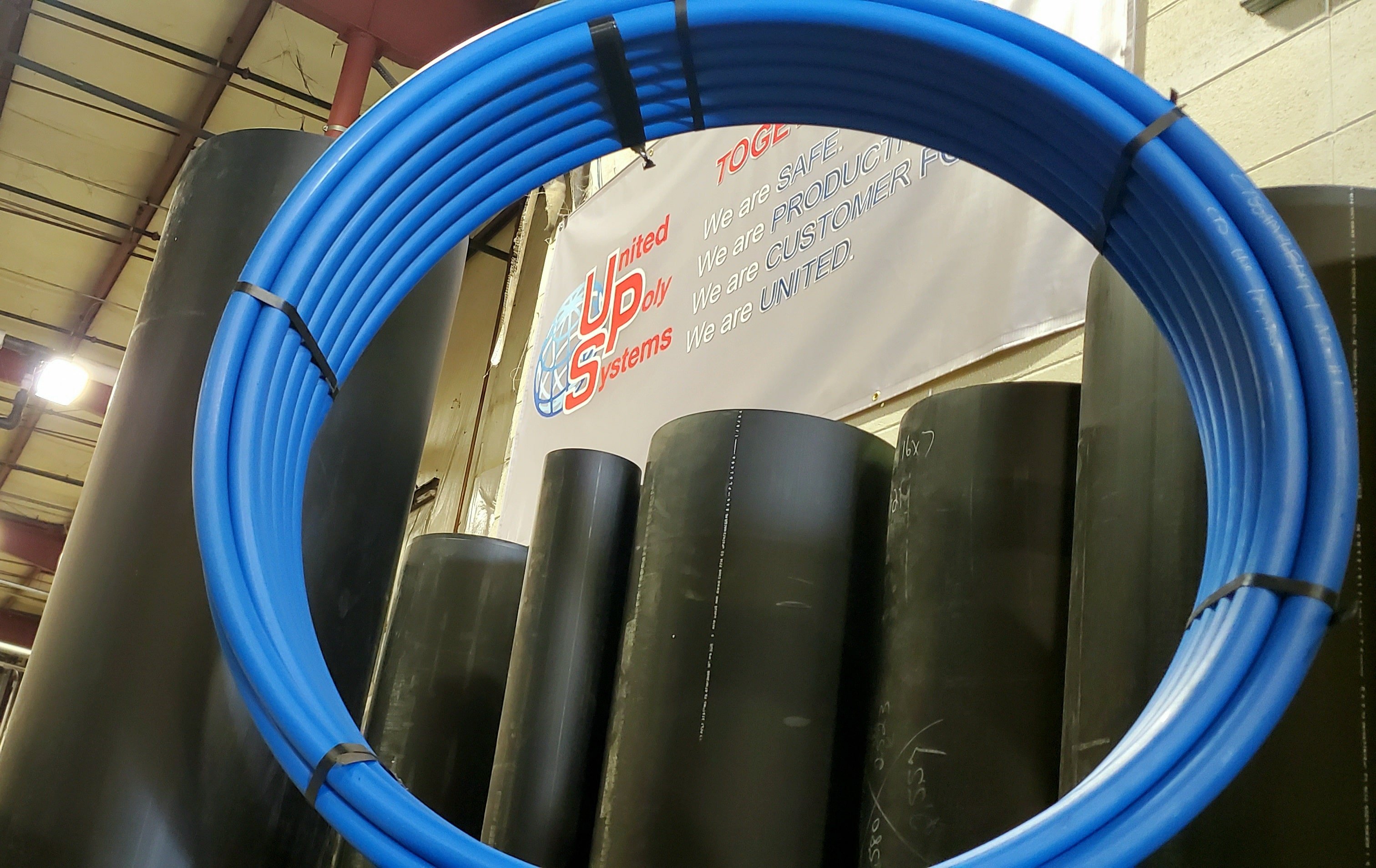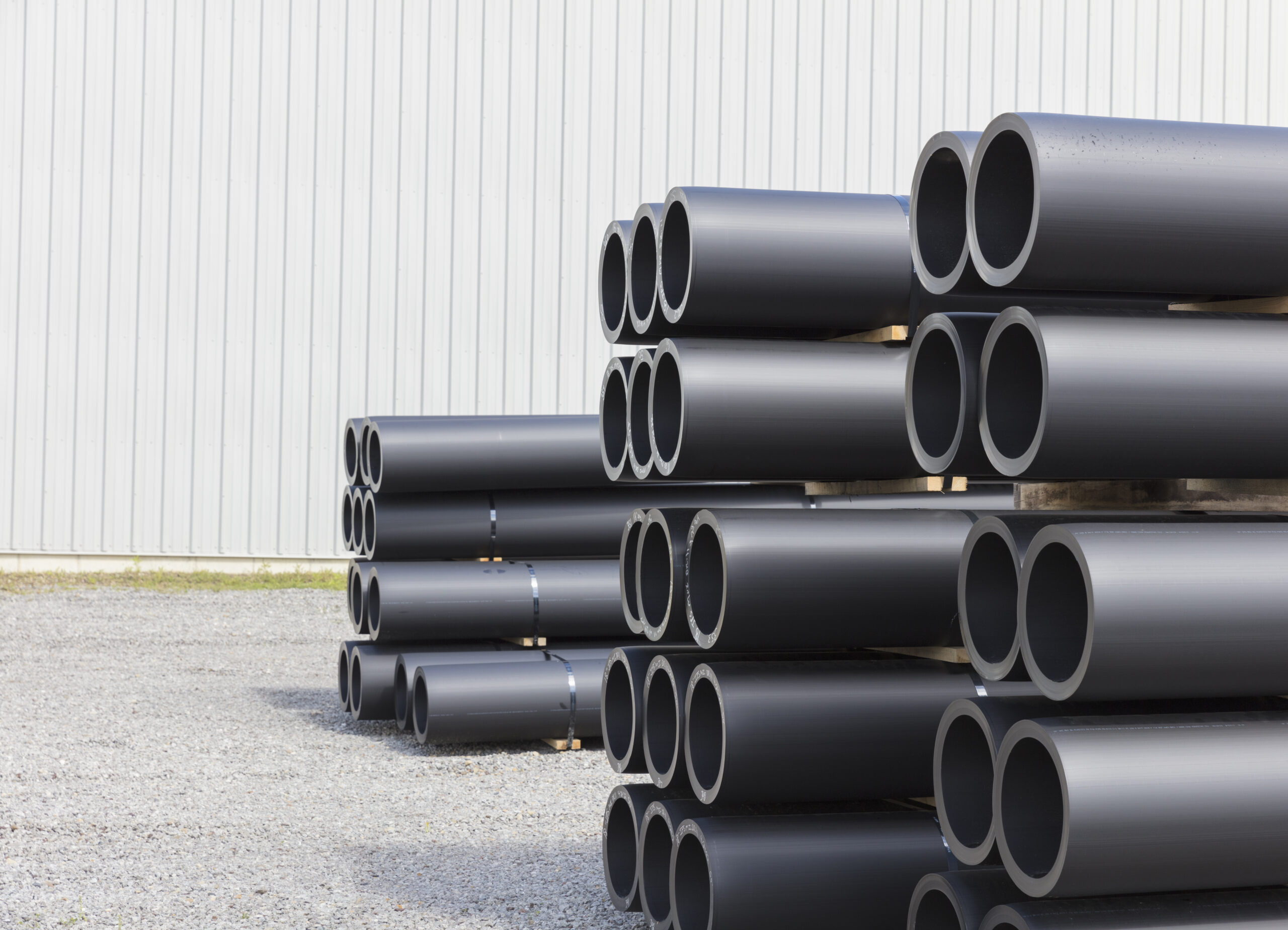American Plastics HDPE Pipe for Oilfield: Built for Harsh Conditions
Wiki Article
A Comprehensive Overview to the Different Usages of HDPE Pipe in Construction and Sector
HDPE pipes have emerged as a critical part in modern construction and industrial applications. Their one-of-a-kind buildings, such as resistance to corrosion and lightweight style, make them appropriate for a wide variety of usages. From water system systems to farming watering, HDPE pipes provide services that improve efficiency and sustainability. Comprehending their diverse applications is important for professionals looking to optimize infrastructure. What specific advantages do these pipelines offer each field?Water Supply and Circulation Systems
Water supply and circulation systems are crucial components of metropolitan framework, usually counting on high-density polyethylene (HDPE) pipes for their toughness and effectiveness. These systems transportation potable water from treatment facilities to consumers, making certain ease of access and safety and security. HDPE pipes are preferred for their resistance to corrosion, chemicals, and severe temperatures, which improves their longevity and decreases maintenance prices. Additionally, their light-weight nature allows for simpler setup and transportation, making them optimal for various city and rural applications.The adaptability of HDPE pipes allows them to be installed in tight spaces and around obstacles, reducing the demand for substantial excavation (hdpe pipe suppliers Midland TX). Their smooth interior surface lowers friction losses, enhancing water circulation rates. As cities proceed to expand, the demand for trustworthy supply of water systems increases, placing HDPE pipelines as a sustainable service for contemporary facilities tasks. Their tried and tested performance history makes them a preferred selection amongst engineers and city coordinators alike
Wastewater Management and Treatment
Efficient wastewater monitoring and therapy are necessary for preserving public wellness and environmental top quality. HDPE pipelines play a vital role in this procedure as a result of their longevity, resistance to deterioration, and capability to endure harsh chemicals. These pipes are commonly used in different applications, consisting of sewer system, stormwater water drainage, and wastewater treatment centers. Their lightweight nature assists in easier installation and transport, minimizing labor costs and time.On top of that, HDPE pipes have a smooth indoor surface that reduces friction loss, promoting reliable flow rates. They are also less vulnerable to leakages and failures compared to standard materials, ensuring that impurities are had efficiently. In addition, their versatility enables flexibility in different dirt conditions, making them appropriate for varied ecological setups. As markets increasingly focus on sustainable methods, the usage of HDPE pipelines in wastewater administration systems straightens with goals for decreasing ecological effect and enhancing resource recovery.
Agricultural Irrigation Solutions
In agricultural settings, reliable irrigation solutions are essential for optimizing crop yields and taking care of water resources. HDPE (High-Density Polyethylene) pipes play a crucial duty in modern irrigation systems because of their resilience, versatility, and resistance to corrosion. Their ability to endure high stress makes them ideal for both surface and subsurface irrigation applications, making sure uniform water distribution across fields.Farmers can use HDPE pipelines in drip watering systems, which provide water straight to plant origins, lessening waste and advertising healthy growth. In addition, these pipelines are lightweight and simple to mount, lowering labor expenses and setup time. Their long lifespan and low upkeep needs better improve their charm in agricultural practices.
Furthermore, HDPE pipes are environmentally pleasant, as they can be reused and do not click here for info leach hazardous chemicals into the dirt. This makes them a sustainable option for farmers intending to adopt green agricultural approaches while taking full advantage of performance.
Industrial Applications and Procedures
Convenience is a hallmark of HDPE pipelines, making them indispensable in different commercial applications and processes. These pipelines are extensively used in chemical handling markets as a result of their superb resistance to a broad variety of destructive materials. HDPE's lightweight nature, integrated with high tensile toughness, enables simple installation and long-term efficiency sought after atmospheres.In the oil and gas industry, HDPE pipelines play an essential role in transferring hydrocarbons and gases, see this many thanks to their toughness and flexibility - hdpe pipe suppliers Midland TX. Furthermore, they are used in mining procedures for the transportation of slurry and various other products, where traditional piping systems may stop working
Moreover, HDPE pipes are significantly made use of in manufacturing facilities for water supply lines and wastewater administration. Their capacity to hold up against extreme temperature levels and pressures makes them appropriate for a selection of industrial procedures. In general, HDPE pipelines add considerably to efficiency and safety and security across diverse industrial applications.
Stormwater Monitoring and Drainage Solutions
Stormwater administration and drain systems are critical components in urban infrastructure, designed to manage excess rainfall and reduce flooding risks. High-density polyethylene (HDPE) pipelines are significantly made use of in these systems as a result of their durability, flexibility, and resistance to rust. These pipes effectively deliver stormwater far from booming locations, decreasing surface area drainage and preventing waterlogging.HDPE's lightweight nature assists in much easier installment, lowering labor prices and building and construction time. In addition, its resistance to chemicals and ecological stress factors assurances durability and reliability in various environments. In enhancement to typical water drainage applications, HDPE pipelines are likewise employed in innovative solutions such as environment-friendly framework, that includes rain yards and more absorptive pavements.

Often Asked Inquiries
How Does HDPE Pipeline Compare to PVC Pipe in Price?
Generally, HDPE pipeline tends to be much more costly than PVC pipeline because of its improved resilience and flexibility. Long-lasting cost factors to consider, such as maintenance and life-span, might favor HDPE in specific applications.What Is the Life Expectancy of HDPE Pipeline Under Numerous Conditions?
HDPE pipelines typically have a life-span of 50 to 100 years, depending on ecological conditions, installment methods, and usage. Variables such as temperature, dirt type, and direct exposure to chemicals can considerably influence their longevity.Can HDPE Water Lines Be Recycled After Usage?
Yes, HDPE pipelines can be reused after use. The reusing process entails melting down the material, permitting it to be repurposed into brand-new products, consequently advertising sustainability and decreasing ecological effect associated with plastic waste.Are There Any Kind Of Particular Setup Obstacles With HDPE Pipes?
Installment challenges with HDPE pipes consist of correct jointing methods, ensuring ample trench conditions, and handling thermal development. Additionally, skilled labor is needed to take care of specialized devices, which can make complex the installation procedure in various environments.
What Qualifications Should I Look for When Investing In HDPE Water Lines?
When acquiring HDPE pipelines, one ought to try to find accreditations such as ASTM, AASHTO, and ISO, which verify high quality and compliance with market standards, guaranteeing longevity and performance in different applications. - Pipe Manufacturing Midland TXReport this wiki page